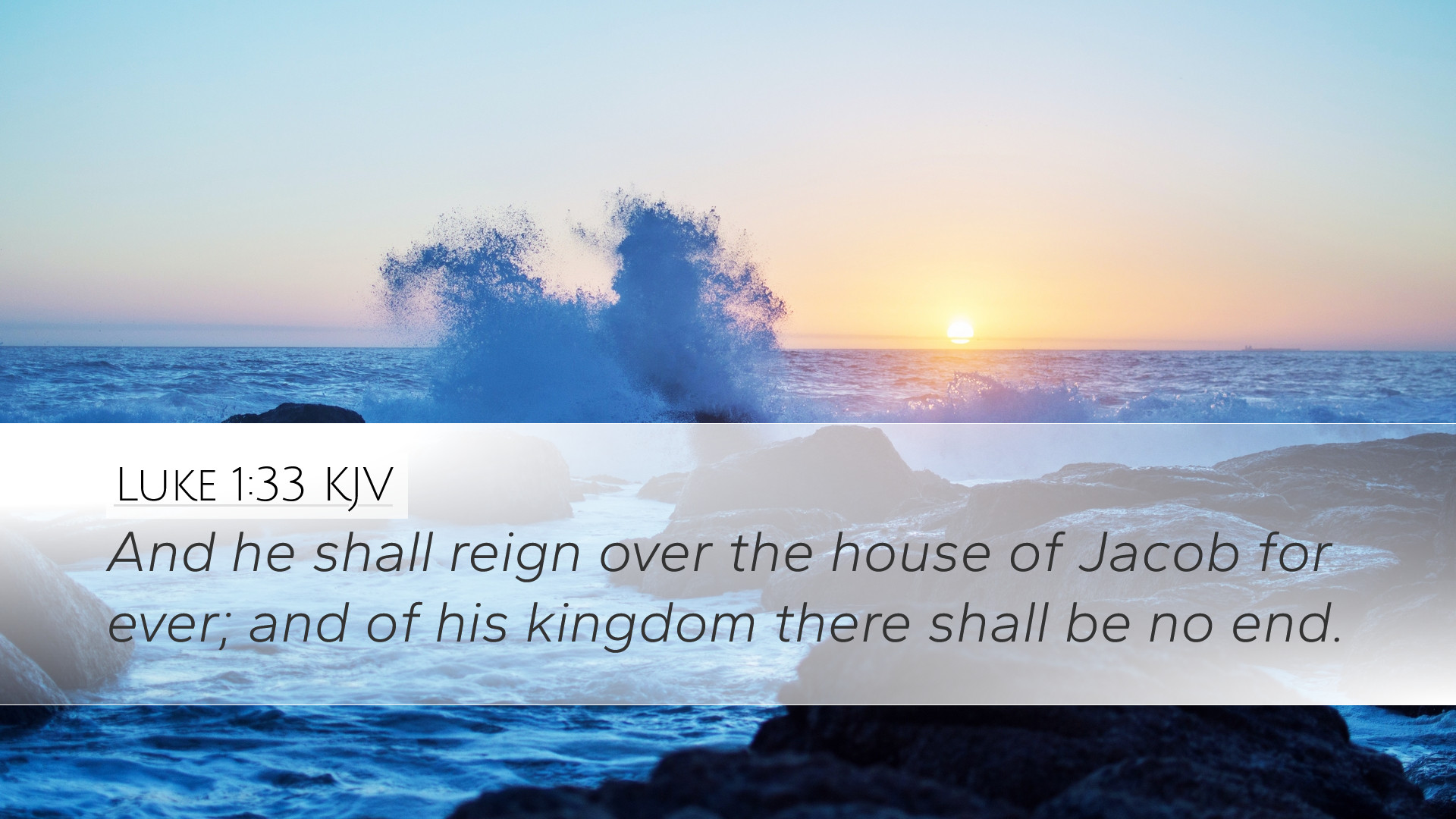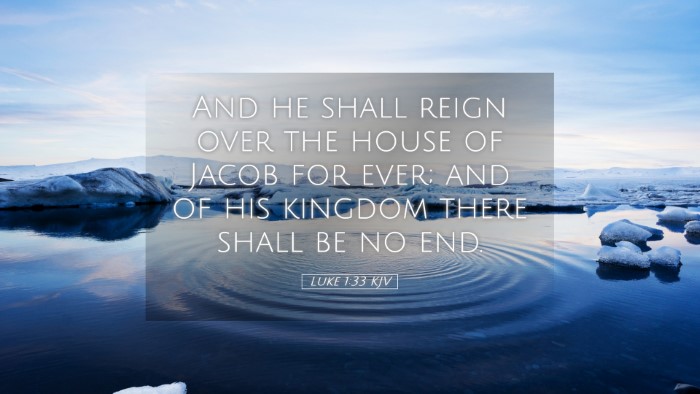Commentary on Luke 1:33
Verse: "And he shall reign over the house of Jacob for ever; and of his kingdom there shall be no end."
Introduction
Luke 1:33 is a profound declaration concerning the eternal reign of Jesus Christ, portraying His sovereign rule over Israel and the establishment of His everlasting kingdom. This verse is significant for understanding the nature of Christ's kingship and the fulfillment of biblical prophecy.
Historical Context
The Gospel of Luke is written to provide an orderly account of the life and ministry of Jesus, emphasizing the fulfillment of the Old Testament prophecies. The declaration of Christ’s reign comes during the annunciation, where the angel Gabriel speaks to Mary, affirming that her child will occupy a throne that is not merely temporal but eternal.
Theological Significance
This verse encapsulates essential theological truths about the nature of Christ's kingdom, His role as Messiah, and the implications for believers.
1. The Nature of Christ's Reign
Here we observe the affirmation that Jesus will reign over the "house of Jacob." This reference connects Him with the lineage of David, fulfilling the Abrahamic and Davidic covenants. Matthew Henry notes that “the house of Jacob” signifies not only the physical descendants but also points to the spiritual Israel, which includes all believers.
Albert Barnes emphasizes the “everlasting” nature of Christ’s dominion, suggesting that unlike earthly kingdoms, which rise and fall, His reign will endure throughout eternity. This challenges the human proclivity to establish temporal power structures that are subject to decay.
2. Fulfillment of Prophecy
The proclamation of Luke 1:33 aligns with Old Testament prophecies regarding the coming Messiah. Adam Clarke references several passages, including Isaiah 9:7, which anticipates a kingdom characterized by peace and justice, founded upon the throne of David.
This everlasting reign not only fulfills the ancient prophecies but also establishes Jesus as the promised king who brings salvation not just to Israel but to all nations. This underscores the universal scope of Christ's kingdom, inviting all to partake in His everlasting reign.
Application for Believers
Understanding the implications of Jesus’ kingly reign is crucial for believers today. It invites introspection and reassures us of the hope we have in Christ and His kingdom.
1. Assurance of His Sovereignty
In a world rife with uncertainty and turmoil, the absolute sovereignty of Christ provides comfort. As Matthew Henry succinctly states, “He that reigns in heaven must reign over the hearts of men.” This kingly authority should evoke a sense of peace and security in believers, knowing that Christ governs history and our own lives.
2. Call to Kingdom Living
With the acknowledgment of Christ as king, there comes an expectation for believers to reflect the values of His kingdom in their lives. Albert Barnes articulates this notion by urging Christians to live in such a way that demonstrates the lordship of Christ in every aspect—from personal conduct to societal engagements. This is a call to discipleship, aligning our lives with the principles established by our King.
3. Hope for Eternity
Furthermore, the promise of Christ ruling "for ever" should instill within believers a profound hope and anticipation for the future. Adam Clarke stresses that this eternal kingdom contrasts starkly with worldly systems, highlighting the ultimate victory of Christ over sin, death, and decay. For the faithful, there is an assurance of eternal life in communion with the King of Kings.
Concluding Thoughts
Luke 1:33 stands as a powerful reminder of the unshakeable nature of Christ's rule and the nature of His kingdom. The insights from historical commentators reveal not only the fulfillment of prophetic expectation but also the implications for believers today. As we reflect on this verse, let it resonate within us a renewed commitment to live under Christ's kingship, proclaim His eternal reign, and anticipate the consummation of His kingdom.


